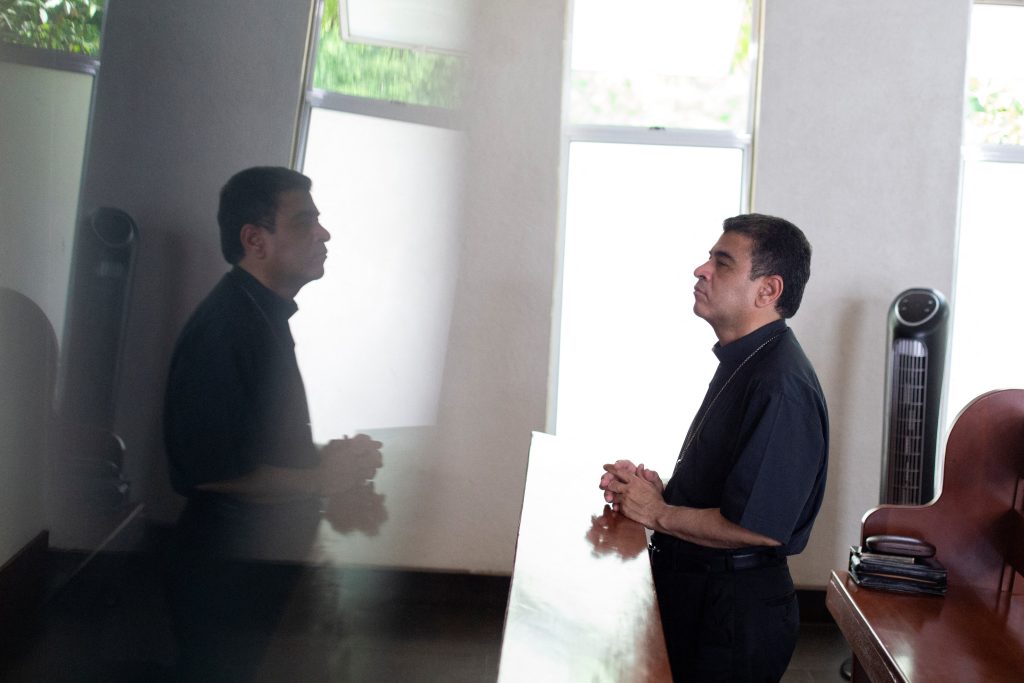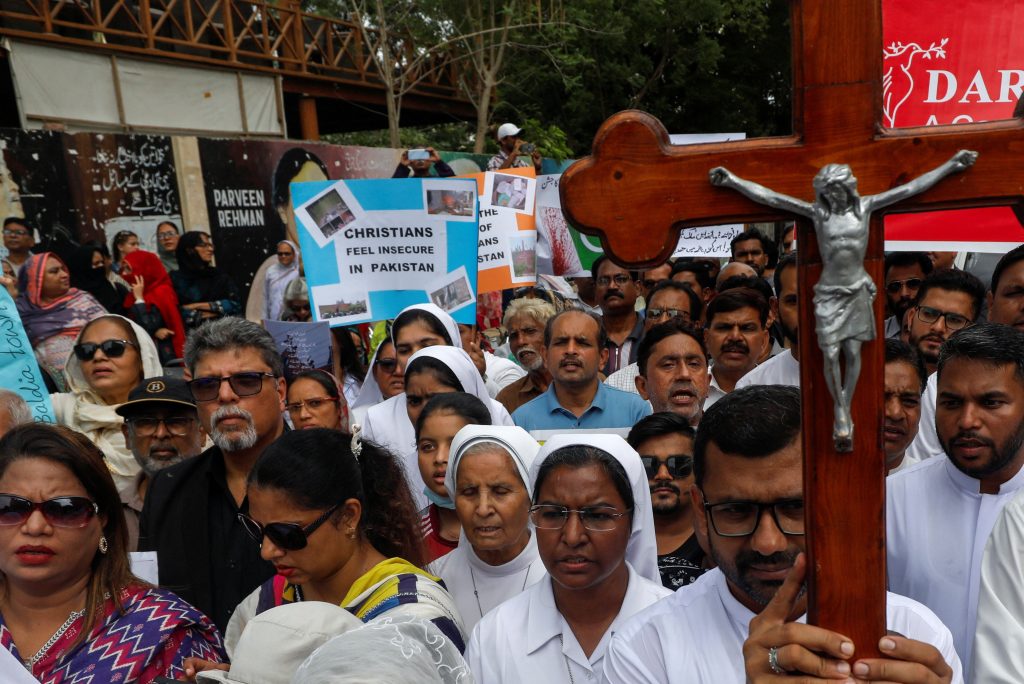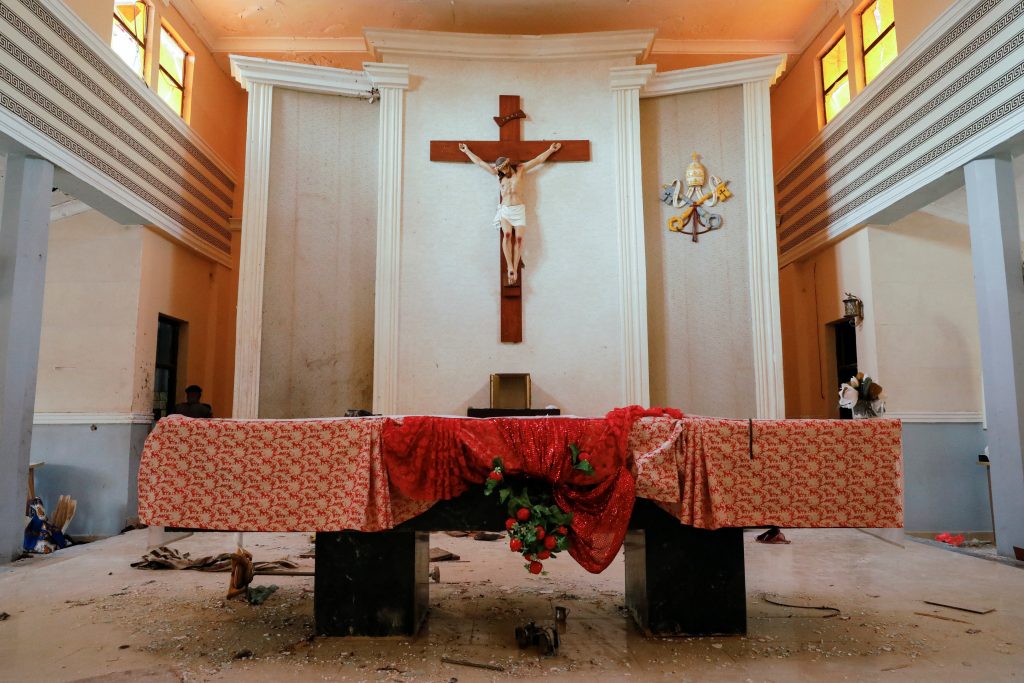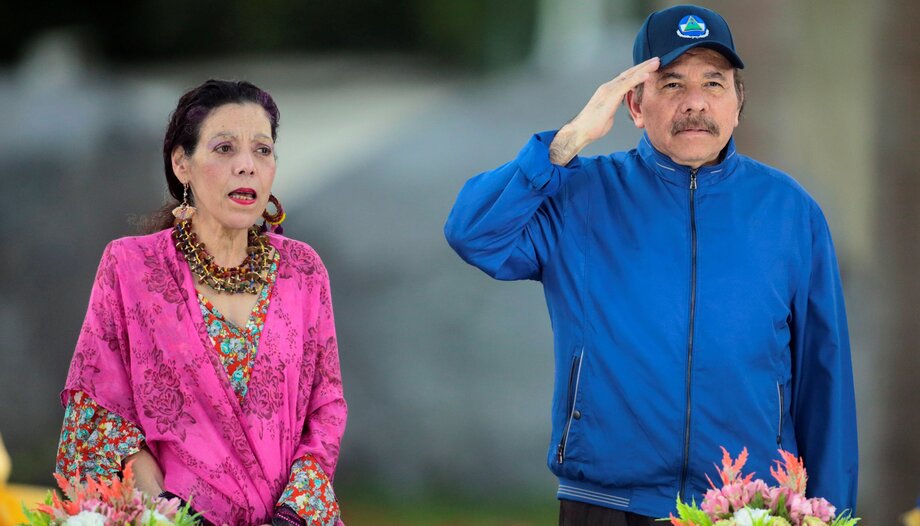 Alder, Nicaraguan seminarian: "The Pope asked us to be courageous".
Alder, Nicaraguan seminarian: "The Pope asked us to be courageous". "We Christians in Pakistan have hope for a better future."
"We Christians in Pakistan have hope for a better future." Church in Nigeria calls for respect and dialogue in the face of persecution of Christians
Church in Nigeria calls for respect and dialogue in the face of persecution of ChristiansTension and religious intolerance are growing in some countries. On August 16, 2023 several churches, homes and a Christian cemetery were attacked by a mob in Pakistan. On the other hand, Daniel Ortega's regime in Nicaragua dissolved the Jesuit order at the end of the month after confiscating all the assets of the university and the congregation's residence in the country. These incidents are just a sample of the threats suffered by thousands of Christians in different countries around the world.
In the case of Nicaragua, the Church has suffered persecution for years. In 2022, one of the most tense moments occurred when the government imprisoned Msgr. Rolando Alvarez. The bishop remains in prison after having refused opportunities for banishment, believing that the faithful of the country need him to remain with them. The prelate is accused of treason and the conditions in which he is living in captivity are largely unknown.

The official communiqué of the Jesuits in Nicaragua
Following the aforementioned dissolution of the Jesuit Order, the Central American Province of the Society of Jesus published a press release condemning the aggression and pointing out that the repression they are suffering is considered a crime against humanity. On the other hand, the Jesuits point out that the actions of Ortega's government are heading towards "the full establishment of a totalitarian regime".
The communiqué calls for an end to the repression and the search for solutions that respect people's freedom. It also shows its closeness to the victims of the dictatorship and thanks "the countless signs of recognition, support and solidarity".
Persecution in Pakistan
At the same time, Pakistan is also experiencing intense religious persecution. The country's blasphemy laws are very often applied to minority religious groups.
According to the data provided by the evangelical organization "Open Doors"The level of violence experienced by Christians in Pakistan is extreme. Moreover, "they are considered second-class citizens and suffer discrimination in all aspects of life".
The attacks on Christian communities, mostly in the provinces of Punjab and Sindh, include beatings, kidnappings, torture, forced marriages and sexual violence. Despite the attacks, the victims say that there is no authority to protect their rights and that the situation of insecurity is very high.
The Archbishop of Lahore, Sebastian Shaw, visited the communities attacked on August 16. With him were several Muslim leaders who wanted to show their support and closeness to the victims. Archbishop Shaw encouraged Christians to bring comfort to one another, becoming "witnesses to the love of Jesus".

Attacks in Nigeria
Nigeria is the sixth most persecuted country in terms of religious persecution, according to data from "Open Doors". Despite the attacks, almost half of the population is Christian. Most Christians live in the south of the country, while the north is largely Muslim.
Various violent groups raid villages of Christian communities, carry out attacks and confiscate the land of the inhabitants. This has led to thousands of internally displaced people in Nigeria fleeing killings, abductions, torture and marginalization.

Data on the lack of religious freedom
To get an overview of the current situation, "Aid to the Church in need"published in its annual report for 2023 data on violations of religious freedom. The analysis confirms that of the 196 countries in the world, religious freedom is violated in 61. Of these, in 28 countries there is persecution, while in 33 there is discrimination.
The differences between these two types of attacks on religious freedom are also explained in the report. Among the characteristics of persecution are hate crimes and violence, or the passing of laws that directly and negatively affect religious groups. Discrimination, on the other hand, involves conduct such as limitations on freedom of expression, prohibitions on wearing certain religious symbols, or difficulties in access to employment or housing.
Among the attackers of religious freedom there are three main groups: ethno-religious nationalism, Islamist extremism and authoritarian governments. The greatest concentration of attacks in the world is in Africa, which in the annual report of "Aid to the Church in Need" is identified as "the most violent continent due to the spread of jihadism".











